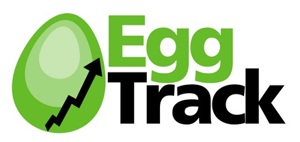
Eggtrack
EggTrack continues to measure and propel the transition to cage-free eggs, highlighting leaders in this space, motivating those who have fallen behind, and affirming the need for ongoing improvement and transparency in the market as companies work toward their common goal of being 100% cage-free.
This tool is intended for food companies, industry stakeholders, investors, conscious consumers, and those who are responsible for the day-to-day decision-making and implementation processes needed to achieve cage-free production.
It is meant to support producers and purchasers alike, encouraging positive and meaningful dialogue towards committing to source and deliver cage-free eggs at a national, regional, and global level.




